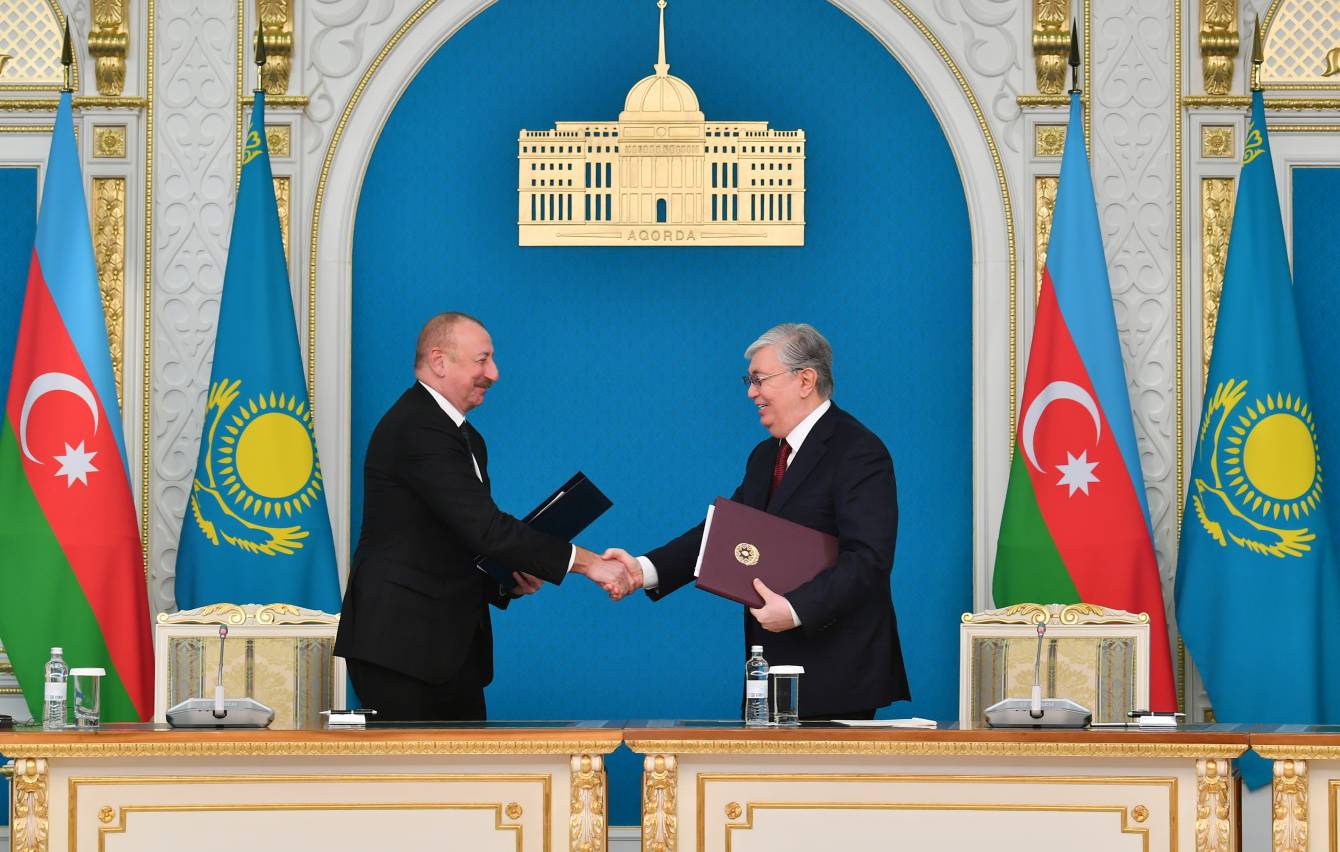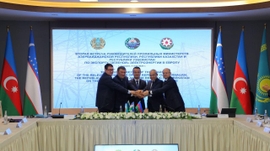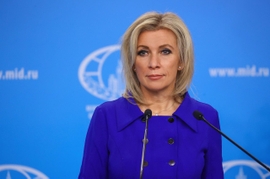The flow of oil from Kazakhstan to European markets through Azerbaijan’s territory is set to increase this year following an agreement reached on Monday between President Ilham Aliyev and his Kazakh counterpart Kassym-Jomart Tokayev to strengthen their cooperation.
According to President Tokayev, the shipment of the first batch of crude oil from Kazakhstan via Azerbaijan’s Baku-Tbilisi-Ceyhan pipeline has taken place this year.
“The next step is to increase the volume of deliveries and make them sustainable in the long term,” he said, reports President.Az.
In March of this year, the State Oil Company of the Azerbaijan Republic (SOCAR) announced the commencement of Kazakh oil transit through the Baku-Tbilisi-Ceyhan (BTC) pipeline. The first shipment of crude oil from the Tengiz field arrived on March 23 at the Sangachal Terminal in Azerbaijan, aboard the Azerbaijani tanker fleet vessel “President Heydar Aliyev.” The second batch of Kazakh oil was transported on March 27 to be pumped into the BTC pipeline.
The transportation took place under a Master Agreement signed between SOCAR and the Kazakh national energy company KazMunayGas, which enables the transit of 1.5 million tons of oil annually. Both parties have agreed to conduct 12-14 tanker voyages between the ports of Baku and Aktau until the end of 2023.
In 2022, prior to receiving Kazakh oil, SOCAR carried out essential upgrades to the collector pipeline network at the Sangachal Terminal. These upgrades were aimed at increasing the capacity utilization of the pipeline network and facilitating the intake of Kazakh oil into the BTC pipeline.
According to reports, apart from the BTC pipeline, Azerbaijan will also use the Baku-Supsa pipeline to transport additional volumes of Kazakh oil to the Black Sea port of Supsa in Georgia this year. The estimated volume of this year’s shipments through the Baku-Supsa pipeline is 3.5 million tons, but the exact quantity has not been disclosed.
Initial reports about the oil transit agreement between Azerbaijan and Kazakhstan emerged in August 2022. At that time, Reuters reported that Kazakhstan was exploring the possibility of selling some of its crude oil through the Azerbaijani pipeline, as the country had been seeking alternative routes to avoid the threat of Russia shutting down its pipelines.
For the past two decades, Kazakh crude oil has been transported through the Caspian Pipeline Consortium (CPC) pipeline to the Black Sea port of Novorossiysk in Russia, before being shipped to global markets. However, in July 2022, a Russian court threatened to shut down the CPC pipeline, which prompted the Kazakh government and major foreign producers to seek alternative contracts as a precautionary measure.
The combined volume of flows on both the BTC and Baku-Supsa pipelines would amount to slightly over 100,000 barrels per day (bpd), which is approximately 8 percent of the CPC pipeline's flows. In July 2022, BP Azerbaijan declared its intention to redirect flows from the Baku-Supsa pipeline to the larger BTC pipeline, in order to facilitate the transportation of Kazakh oil through the pipeline network.







 The Azerbaijani government has rejected the recent claims made by French Interior Minister Gérard Darmanin, who accused Baku of fostering separatis...
The Azerbaijani government has rejected the recent claims made by French Interior Minister Gérard Darmanin, who accused Baku of fostering separatis...
 The Chief of the Atomic Energy Organisation of Iran (AEOI) said that the country has allowed more than 130 inspectors of the International Atomic E...
The Chief of the Atomic Energy Organisation of Iran (AEOI) said that the country has allowed more than 130 inspectors of the International Atomic E...
 Maria Zakharova, the spokeswoman for the Russian Foreign Ministry, has firmly stated that Russia categorically rejects any suggestion of exchanging...
Maria Zakharova, the spokeswoman for the Russian Foreign Ministry, has firmly stated that Russia categorically rejects any suggestion of exchanging...



